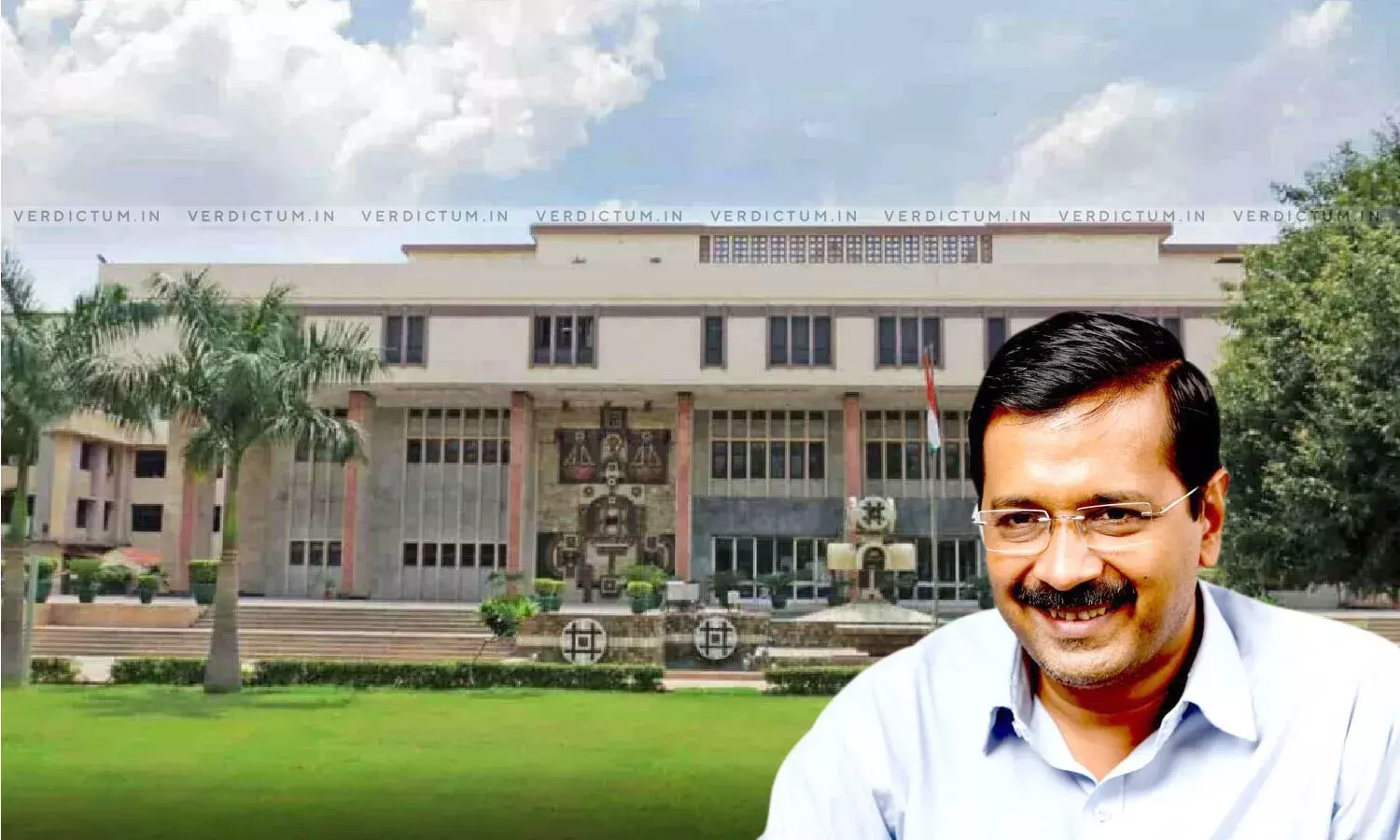At Times Personal Interest Has To Be Subordinate To National Interest; It's His Call: Delhi HC Refuses To Entertain PIL Seeking Removal Of Arvind Kejriwal As CM
The Delhi High Court has refused to entertain a Public Interest Litigation (PIL) filed by Vishnu Gupta, President of an organisation named Hindu Sena, seeking the removal of Arvind Kejriwal from the post of Chief Minister.
Kejriwal, who was arrested by the Enforcement Directorate (ED) on March 21 in connection with a money laundering case related to the Delhi excise policy scam, is currently in judicial custody till April 15.
In the petition, the organization demanded the Court to Order Delhi Lieutenant Governor (LG) VK Saxena to remove CM Arvind Kejriwal from his post. The plea further stated that the central government should run Delhi via LG rule.
During the hearing, Advocate Barun Sinha appeared for the Petitioner, Additional Solicitor General (ASG) Chetan Sharma appeared for the Union of India, and Senior Advocate Rahul Mehra appeared for the NCT of Delhi.
The Bench of Acting Chief Justice Manmohan and Justice Manmeet Pritam Singh Arora said at times personal interest has to be subordinate to national interest. The Court also said that the remedy does not lie with this Court it lies with some other authority.
At the outset, Sinha on behalf of the Petitioner submitted, "After evening of March 21, there is no government in NCT of Delhi. That is the worry as a citizen to me."
To this Acting CJ Manmohan said, "That is a practical aspect. At times personal interest will have to be subordinate to the national interest, but that is his (Arvind Kejriwal's) call. If he doesn't want to do it, that's up to him. We are a Court of law, we have to administer the law. Do you have any citation where the President's rule or the Governor's rule has been imposed by the Court?"
Sinha responded, "No, My Lord! I am not on that aspect. I am not at all on that aspect...I am relying on Manoj Narula, a Constitution Bench Judgment, where the Doctrine of Constitutional Trust has been formulated for the first time."
"The remedy does not lie in this Court. The remedy lies with some other authority. You go there. There is a Lieutenant Governor, there is a President of India, there is a Member of Parliament. You go to them," Acting CJ Manmohan said. He added, "The Courts will not enter into this issue. You can raise this issue before another forum and the other forum is already seized of the matter."
The Counsel for the Petitioner argued, "I am not on that the point that he (Kejriwal) has to dissolve the assembly. No! He can appoint, because he has discretion to appoint under Section 164, any leader who will be chosen in his place from the Aam Aadmi Party itself. He can be appointed. But as a people, I am entitled to have a Government, which I am not having today. This is my respectful submission for your Lordships kind consideration."
After some arguments, Sinha, in view of the observation of the Court in Surjit Singh Yadav v. Union of India and Ors., expressed his desire to withdraw the present Writ Petition and sought liberty to approach the competent authority.
"The Petitioner seeks to file a representation before the Honourable Lieutenant Governor. This Court clarifies that it has not commented upon the merits of the allegations. Accordingly, the Petition is dismissed as withdrawn," the Court ordered.
The Bench clarified, "The rights and contentions of all the parties are left open."
It is argued in the Writ Petition that the Indian Constitution did not anticipate a scenario where a Chief Minister could govern while in police or judicial custody. It cited Articles 163 and 164 of the Constitution, which outline the role of the Chief Minister and the Council of Ministers in aiding and advising the Governor. "Therefore, the makers of the Indian Constitution have carefully made provisions in Articles 163 & 164 to the effect of the Council or Minister with the Chief Minister as the head to aid and advise the Governor to exercise or his function except discretionary functions or the Governor under the Constitution,” it is contended in the Writ Petition.
According to the plea, Kejriwal's arrest in connection with a case under the Prevention of Money Laundering Act (PMLA) constitutes a breach of constitutional trust. The plea also contended that Kejriwal should have resigned before being taken into custody. However, Kejriwal chose to remain in office while in custody, which the plea alleges is a violation of constitutional trust. It argues that the Governor is obligated to dismiss Kejriwal from the Chief Minister's office.
The petition further asserted that since Kejriwal is in custody, the LG is unable to exercise his powers in the absence of advice from the council of ministers. It argues that this situation undermines the constitutional scheme and parliamentary democracy. "Therefore, w.e.f. 21 March 2024, the functions of the government of the NCT of Delhi are not being carried out in accordance with the scheme of the Constitution. Therefore, the dismissal of Arvind Kejriwal from the Office of Chief Minister is necessitated to uphold the constitution and parliamentary democracy, which are fundamental rights of a citizen," the plea read.
Pertinently, last week, the High Court had dismissed a similar PIL seeking the removal of Delhi Chief Minister Arvind Kejriwal from the post of Government of the NCT of Delhi. The Bench had said that there is no scope for judicial intervention; let the Executive examine it.
Cause Title: Vishnu Gupta v. Union of India and Ors. [W.P.(C)-4904/2024]












